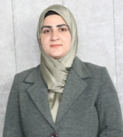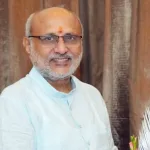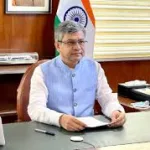MISSION SHAKTI
The introduction of Mission Shakti has set the stage for a new narrative, introducing a comprehensive system aimed at empowering women in multiple dimensions. The women of Kashmir do not need books to understand what it means to live without a voice. Their lived experiences, daily encounters with vulnerability have been their greatest teachers. They didn’t learn these things from textbooks, but from life itself; nervous at first, but growing braver as they asked: Where is my place? Who am I? Does what I say matter? Will anyone listen? Do I have a seat at the table where decisions are made? For decades, the women of Kashmir have managed adversities posed by conflict, societal norms, and limited opportunities.
For years, these questions floated unanswered in the Kashmiri air—heavy with both hope and despair. But now, a new kind of hope has begun to bloom: a hope for freedom and renewed power. This hope is slowly becoming a loud, collective voice, a movement to reclaim control over lives nearly lost to silence. One of the most significant efforts behind this quiet revolution has been Mission Shakti, an integrated mission by the Government of India to empower women both socially and economically.
Ironically, gender issues in Kashmir are multifaceted, rooted in historical, cultural, economic, and social factors. For many women, especially in socially restrictive environments, the decision to break free from oppressive situations is burdened with complexities and fraught with dilemmas. Lack of financial autonomy often traps women in abusive relationships. Concerns over public shaming, children’s welfare, and the absence of supportive systems further complicate their choices. Even when channels of justice exist, the lack of accessible support discourages many women from seeking justice or independence.
Launched in 2021 by the Ministry of Women and Child Development, Mission Shakti is an umbrella scheme that consolidates multiple initiatives focused on women’s safety, security, and empowerment. The scheme operates under two main components:
- Sambal: Focused on ensuring safety and security for women.
- Samarthya: Focused on empowering women economically and socially.
Sambal integrates several key initiatives, such as:
- One Stop Centres (OSCs): These centers provide integrated support to women facing violence, including medical aid, legal assistance, police support, temporary shelter, and psychosocial counselling. As of September 2022, 730 OSCs had been operationalized across India—20 of them in Kashmir—assisting over 6.22 lakh women nationwide, including 6,953 in Kashmir.
- Women Helpline (181): A 24/7 toll-free number offering immediate help to women in distress. By January 2025, the helpline had received over 21 million calls and had assisted more than 8.4 million women.
- Beti Bachao Beti Padhao (BBBP): Promotes the education and welfare of the girl child.
- Nari Adalats: Grassroots-level women’s courts that help resolve cases of harassment and rights violations. These are proving instrumental in providing quick and community-based resolutions.
Samarthya, on the other hand, aims to make women economically self-reliant. It includes:
- Pradhan Mantri Matru Vandana Yojana (PMMVY): A maternity benefit scheme offering financial support to pregnant and lactating mothers.
- Support for Self-Help Groups (SHGs): These groups receive financial assistance, skill training, and market linkages to promote entrepreneurship among women. In Kashmir alone, 89,338 SHGs have been formed, out of which 89,243 have valid savings bank accounts—reflecting a 99.89% financial inclusion rate. Provisions like seed money, revolving funds, and credit linkages ensure women’s financial independence.
Mission Shakti goes beyond economic empowerment. It provides a holistic ecosystemfrom rescue and rehabilitation services to fast-track courts and livelihood supportrecognizing that women face multilayered marginalization: economic, social, and political. It redefines empowerment not as a single step, but as a journey that must be supported at every level.
For women like Nighat Rashid of Baramulla, the scheme has been transformative. “I always wondered if anyone in power even noticed my existence,” she says. “Now, thanks to these schemes and support systems, I don’t just feel noticed, I feel heard.” Nighat now leads a cooperative that trains other women in tailoring and embroidery. Her story demonstrates that empowerment is contagious; it spreads from one woman to another, creating waves of change across entire communities.
The larger social reform is visible. More women are stepping out, challenging traditions of silence and oppression. They are attending panchayat meetings, participating in local governance, and speaking up with renewed confidence. Mission Shakti has equipped them not just with tools but with authority, the recognition that they deserve a seat at the decision-making table.
Safety and security for women are the true forms of empowerment, which not only guarantee her status as a respectable, righteous, and equal citizen, but also make her free from violence and break the barriers that hinder the progress of a family, society, and the nation.
The Ministry of Women and Child Development’s Vision 2047 sees Mission Shakti as the backbone for building an India where every woman is secure, economically self-reliant, and politically empowered. In Kashmir, where restoring social cohesion is as crucial as rebuilding physical infrastructure, Mission Shakti represents a new foundation for Viksit Bharat.
(Author can be reached at: [email protected])








